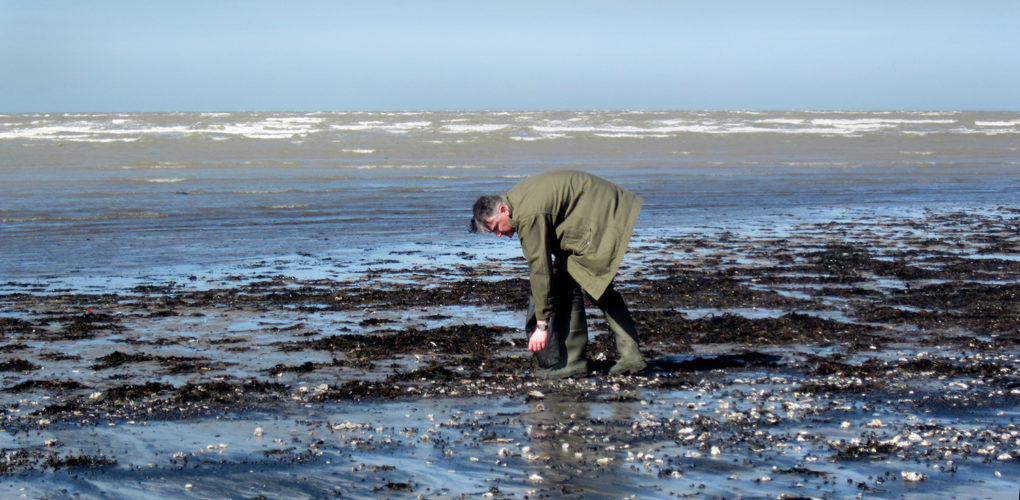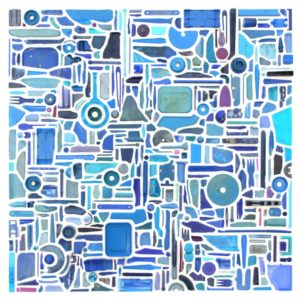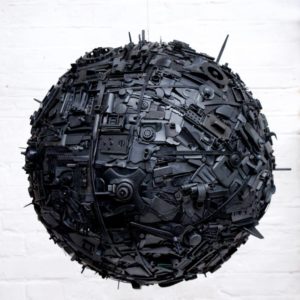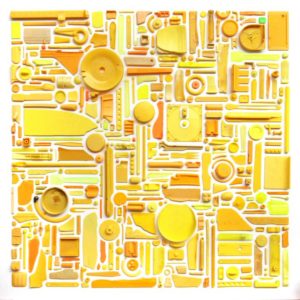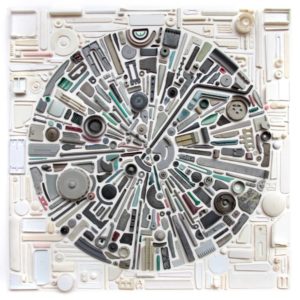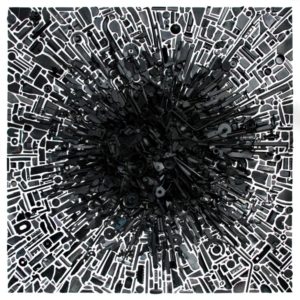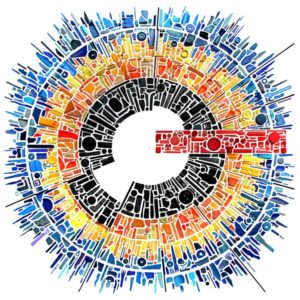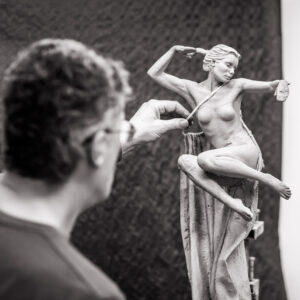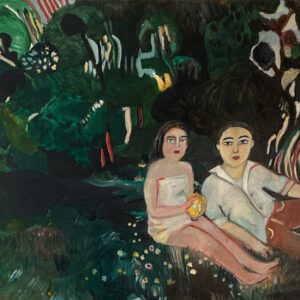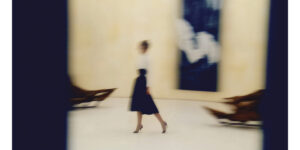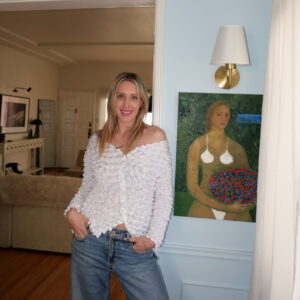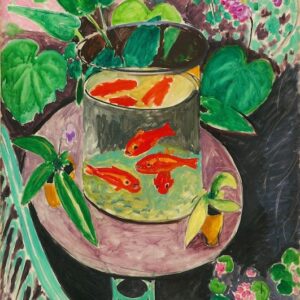The Others
 London: Steve McPherson Talks Us Through Plastic Pollution, One Tiny Piece at a Time
London: Steve McPherson Talks Us Through Plastic Pollution, One Tiny Piece at a Time
The Other Art Fair selects one artist to be their ‘Private View’ artist each edition, to provide an artwork for the VIP Private View invitations. This year, following our Greener Future initiative, Steve McPherson seemed the perfect choice.
Since 2007, Steve McPherson’s source of materials have been plastic waste found on his local beaches of North Kent. In his beautifully detailed sculptural works of art, Steve draws attention to the very real concern of plastic pollution in using these discarded treasures as his primary medium. In this article, Steve talks about ‘Starboard’, the challenges he faced around creating it, and the ecological importance of his practice.
“Starboard is the partner piece of two commissions for John Young and Meloy Architects who in 2012 was building a waterfront holiday beach home on Hayling Island, Hampshire, England. The second piece ‘Larboard’ uses red plastics, both are positioned in the house at opposite sides of mirroring bedrooms.
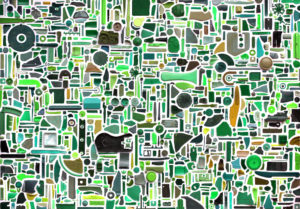
“I have been collecting plastic from my local beaches on north Kent coast for around 25 years.
The problem of plastic pollution was hardly thought of in the mid 1990’s, and for me it was a local novelty. I of course new that this detritus shouldn’t be there, but they along with other objects where just the things the sea brought in on the tide.
“Once I had decided it should be me who removed this waste, I visited the beach almost every day to collect the tidal bounty. Beach combing is quite a meditative practice, one is lost in the moment and at the mercy of the elements. However, treasure hunting it is an addictive pastime, and that is how I did and do still see it.
“Once collected the plastic undergoes a long process of cleaning, drying and sorting into type or colour. The latter being the most troublesome for me due to my colour blindness. It is important that I collect the plastic, and undertake this process, that each one runs through my fingers. Through this one becomes familiar with the objects, decisions are made, and ideas are born through handling.
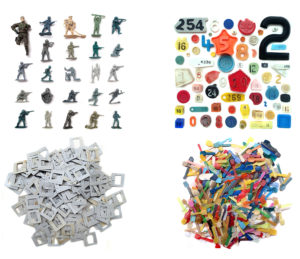
“An artwork can take several weeks to months to create, from the first adhesion to the last. In the colour field works like Starboard, the aim is to fill the space of the ground. A jigsaw without an image and with infinite possible positionings. Visually the aim is to find a balance of tone, colour and shape. To make the eye wander gently over the surface and pause every now and again on some item that is recognisable, or mysteriously intriguing. Mimicking in some way the process of scanning the sands and seaweed to find the items in the beginning of my own process.
“For me starboard was a challenge for not only was it and Larboard the largest works of this kind I had undertaken at the time, but these are the two colours I have most trouble finding due to my colour-blindness. For these I had to enlist the help of my wife and daughter to filter out wrongful inclusions in the sorting process.
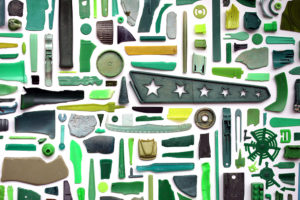
“I have talked about the archaeology of these objects, how they mark time, and the progress of technology. When I first started collecting plastic from the beaches, mobile phones were not ubiquitous everyday objects. Now I find their battered parts embedded in the sands – temporary homes for crablets and sand skippers. The beaches I collect from are the beaches of my childhood, of long hot summers, teenage escape, and adult wandering, where I lost thoughts in the wind and spray. Lost memories reside in these objects, and they become a catalyst for the emergence of more in the viewer.
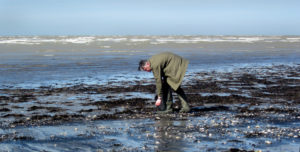
“You cannot ignore the ecological impact plastic has on our environment when you visit a beach and see the evidence. The works I create with plastic pollution bring this into focus whilst discussing our obsession and love affair with objects and novelty. Over time I have seen the numbers of debris increase, in tandem with global with plastic manufacturing. Plastic in its form today is not even 100 years old, and we have yet to really understand its impact and legacy. For most of us it is an every day material that holds little value and worth and represents a fast moving technologically advanced society. We have yet to properly notice it.”
